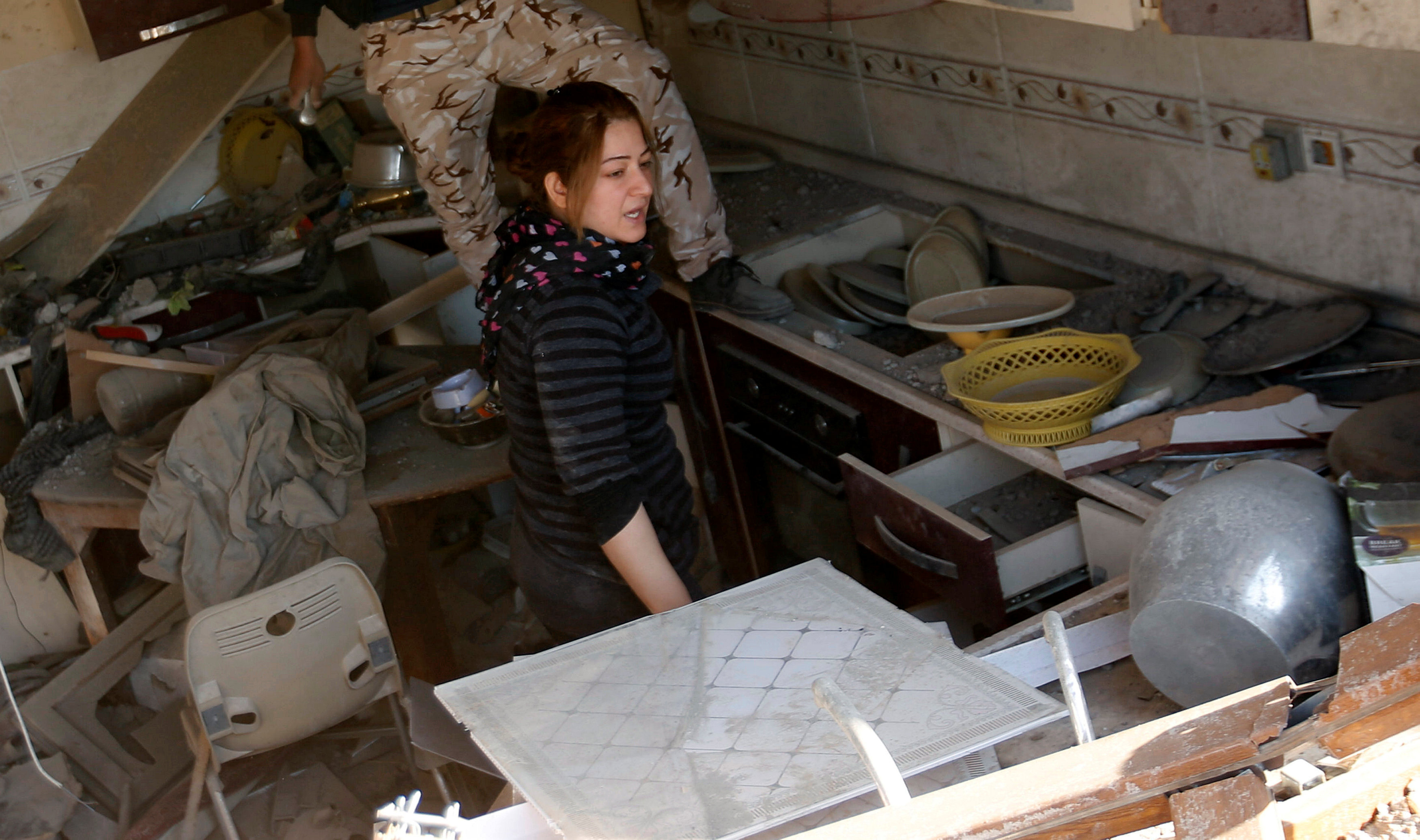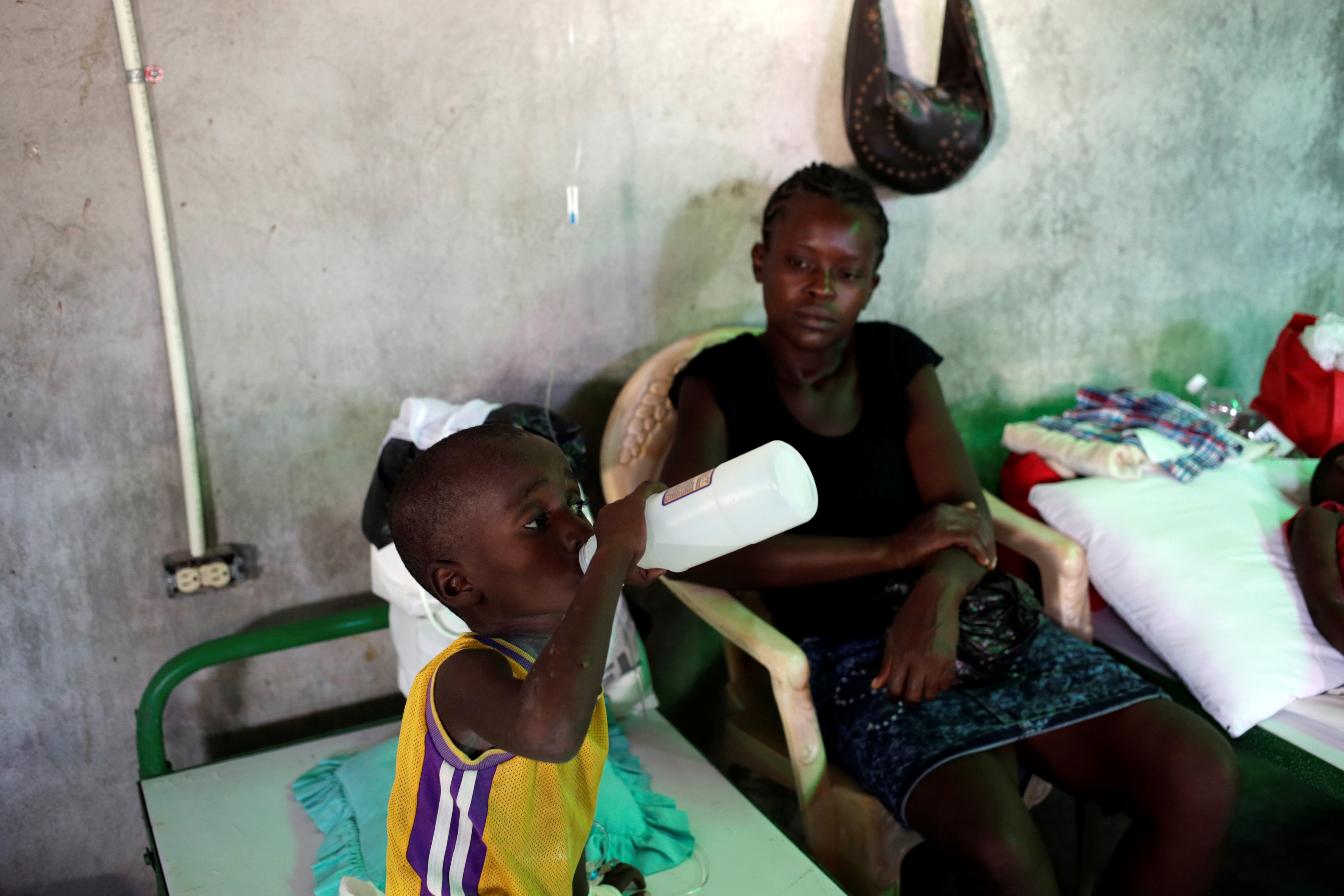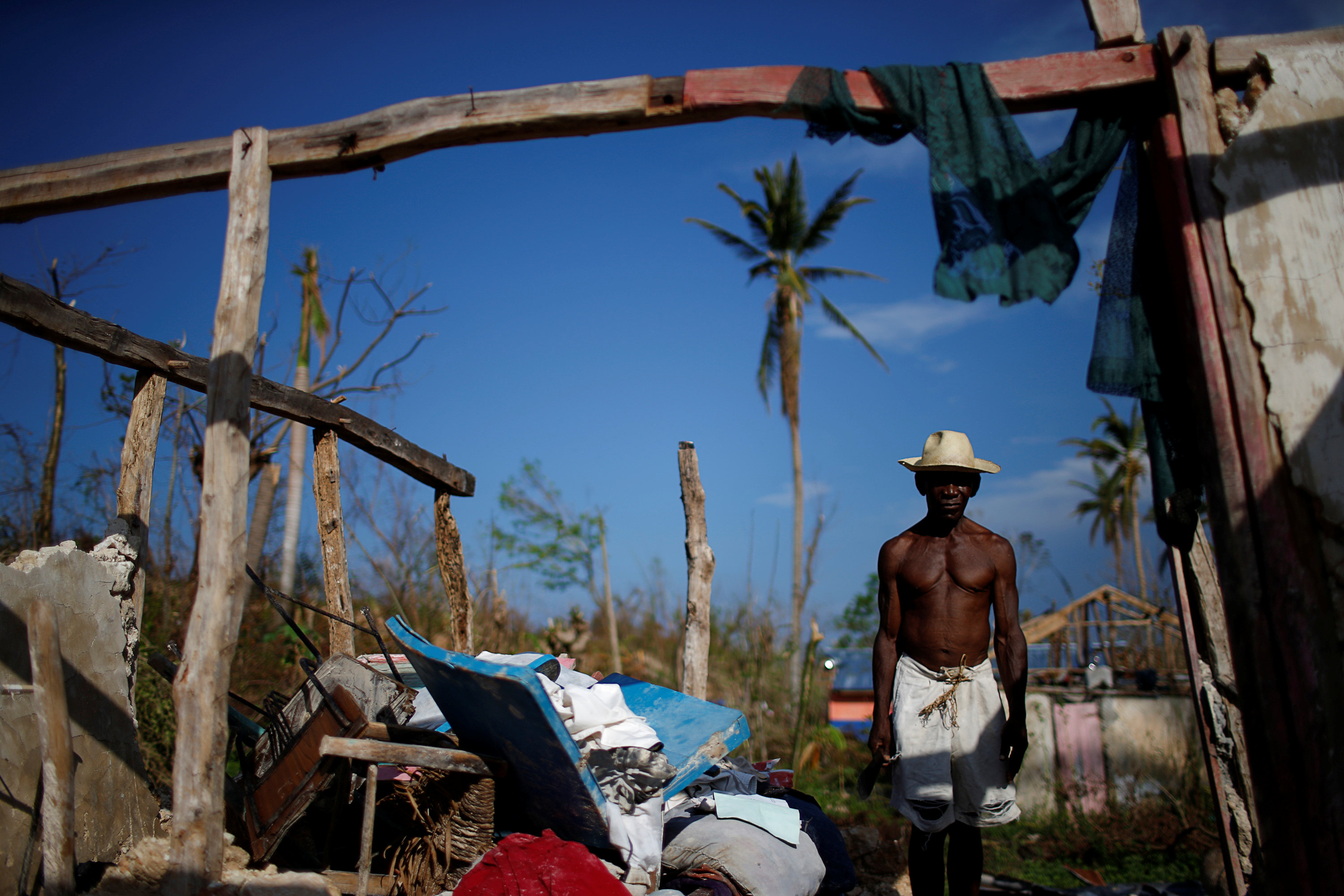
By Andrew Cawthorne and Corina Pons
CARACAS (Reuters) – Security forces have arrested more than 300 people during protests and lootings over the elimination of Venezuela’s largest currency bill, President Nicolas Maduro said on Sunday.
The socialist leader pulled the 100 bolivar note this week before new bills were in circulation, creating a national cash shortage on top of the brutal economic crisis overshadowing Venezuelans’ Christmas and New Year holidays.
After two days of unrest over the measure – including one death and dozens of shops ransacked – Maduro on Saturday postponed the measure until Jan. 2.
That helped stem violence, though there were still reports of more lootings in southern Ciudad Bolivar on Sunday.
The detainees include leaders and members of the opposition Popular Will and Justice First parties, Maduro said on state TV, accusing them of following U.S. instructions to incite chaos.
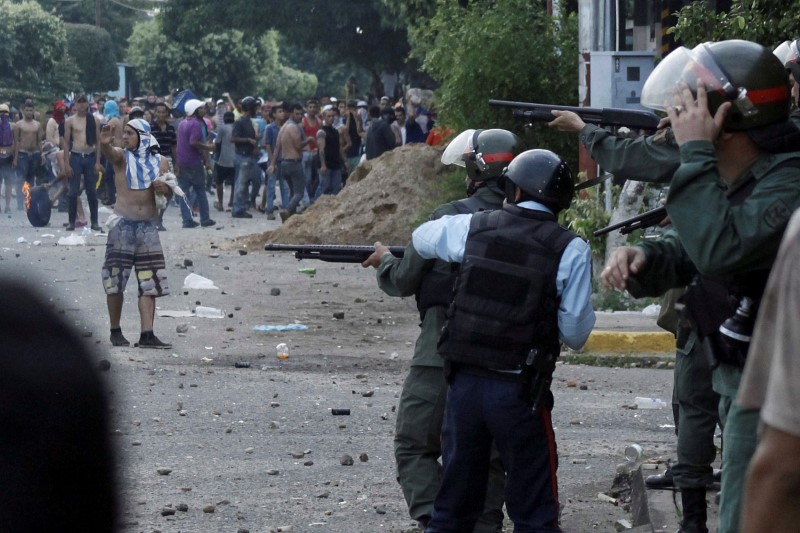
Venezuelan National Guards clash with demonstrators in La Fria, Venezuela December 17, 2016. REUTERS/Carlos Eduardo Ramirez
“Don’t come and tell me they are political prisoners … They are the two parties of the ‘gringos’ in Venezuela,” he added, accusing President Barack Obama of wanting to engineer a coup against socialism in Venezuela before leaving office.
From Venezuela’s southern jungle and savannah to the Andean highlands in the west, groups of hundreds of protesters have been burning bolivar notes, cursing Maduro and decrying scarcities of food and medicines.
The worst looting was on Friday and Saturday, especially in El Callao and Ciudad Bolivar in the southern state of Bolivar, and police have used teargas to control crowds in some places.
Chinese-run shops have been particularly targeted, witnesses say, and a 14-year-old boy was shot dead in El Callao on Friday.
The governor of Bolivar state said there were 262 arrests there, with lootings from food shops to science laboratories. The local business group said 350 businesses had been ransacked in Ciudad Bolivar, including 90 percent of food outlets.
In Santa Elena de Uairen, near the border with Brazil, shopkeepers and inhabitants formed vigilante groups to join police and soldiers after six shops were ransacked on Saturday.
“We’re not lowering our guard, we’re forming protection brigades,” said local business group leader Gilmer Poma.
Food prices were reduced in some establishments in Santa Elena as a way to defuse tensions.
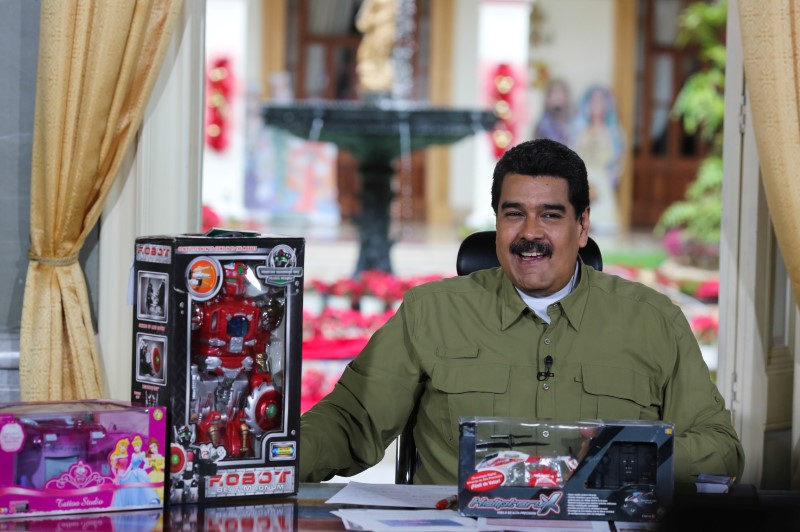
Venezuela’s President Nicolas Maduro speaks next to children toys during his weekly broadcast “En contacto con Maduro” (In contact with Maduro) at Miraflores Palace in Caracas, Venezuela December 18, 2016. Miraflores Palace/Handout via REUTERS
‘CRUEL JOKE’
Maduro, a 54-year-old former bus driver and foreign minister who replaced Hugo Chavez in 2013, has seen his popularity plunge during a three-year recession. He justified the currency measure as a way of suffocating mafia on Venezuela’s borders.
But opponents say it is further evidence of disastrous economic policy in a nation reeling from runaway prices and shortages of basics. They want him to resign.
“The only person guilty of the chaos and violence of recent days is Nicolas Maduro,” the Justice First party said, accusing intelligence agents of taking advantage of the situation to frame opposition leaders with false evidence.
With the 100 bolivar bill originally out of circulation from Friday, many Venezuelans had found themselves unable to purchase food or fill up cars in the busy run-up to Christmas.
“As if we don’t have enough to cope with anyway, now they inflict this craziness on us,” said a grandmother in Caracas, Zoraida Gutierrez, 74, who spent a day lining up under the sun to deposit cash she had under her bed.
“It’s like a cruel joke.”
Despite Maduro’s suspension of the measure on Saturday, some businesses were still refusing the notes on Sunday.
Maduro has been urging Venezuelans to use electronic transactions instead of cash where possible, but 40 percent of the country’s 30 million people are without bank accounts.
State TV showed a plane arriving on Sunday afternoon with a first batch of new currency notes. Central Bank Vice President Jose Khan said they were 13.5 million 500 bolivar bills.
The government is introducing larger bills of up to 20,000.
With many people already skipping meals to get by and forced to sacrifice traditional Christmas food and presents, this week’s confusion has further exasperated many.
Maduro’s popularity recently hit a record low of under 20 percent, according to local pollster Datanalisis.
But Venezuelan authorities thwarted an opposition push this year for a referendum to remove him. That put Maduro on track to finish his term in early 2019 but increased the potential for social unrest due to the lack of an immediate electoral outlet.
(Additional reporting by María Ramírez in Ciudad Bolivar; Editing by Mary Milliken)




